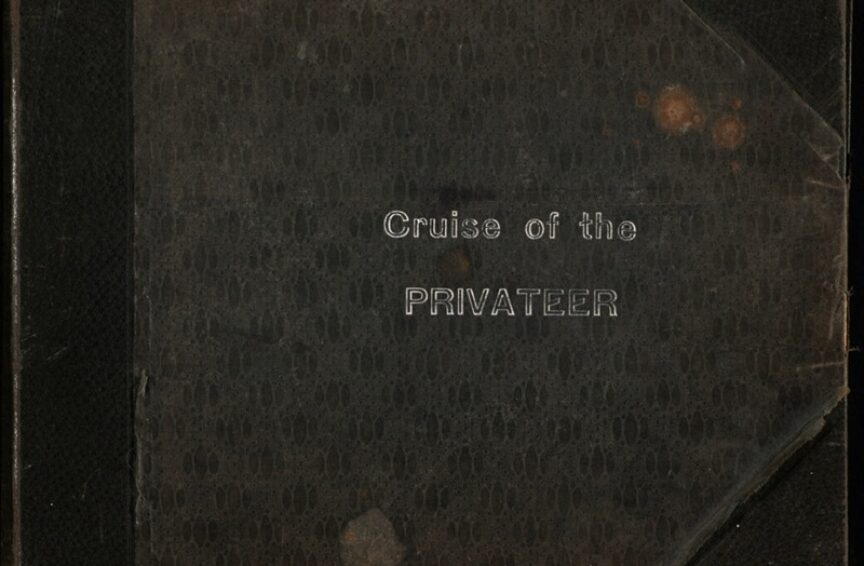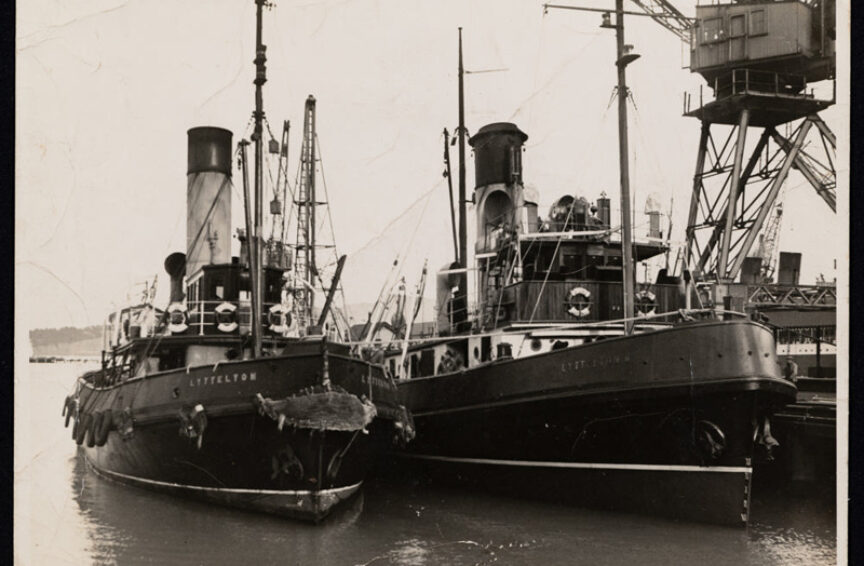PO Box 95
Lyttelton 8841
Te Ūaka recognises Te Hapū o Ngāti Wheke as Mana Whenua and Mana Moana for Te Whakaraupō / Lyttelton Harbour.
The "Polly Woodside"
By Steve McKelvey
Of the many sailing ships in Te Ūaka Lyttelton Museum’s online collection only one or possibly two remain. Many were among the hundreds wrecked on the New Zealand coast, sunk during WWI, or broken up when old and no longer useful. Some spent their last days as hulks towed around ports, carrying coal for refilling steam ships’ bunkers. Local resident David Lublow recalled a neighbour who as a child lived on a coal hulk, her father JP Eames was the hulkmaster. Every day after school she checked to see if her home was in a different position to where she had left it that morning!
One of the sailing ships in our photograph collection was used to provide coal to steam dredges in Melbourne, Australia in the early 1960s. She was the coal hulk Rona, which had a previous special connection with Lyttelton, where she often called in the years 1903 to 1921 as a three-masted barque carrying timber, coal, grain, and produce. From 1904 until 1912 she was registered in Lyttelton. Her original name was Polly Woodside.
In 1885 the Polly Woodside, owned by William Woodside, was launched in Belfast, Northern Ireland. A steel-hulled ship, she was 58.5 m long with a gross tonnage of 678 imperial tons. She carried bulk cargo such as coal, grain, and fertiliser mostly between Britain and North and South America. After the Woodside family moved to California the Polly Woodside was sold.
The New Zealand purchasers in 1904 were AH Turnbull, a Christchurch merchant who had shipping interests, and Captain H Monro of Lyttelton. The Polly Woodside was renamed Rona after Hugh Monro’s daughter. In 1906 Arthur Turnbull’s brother David, a Timaru grain and seed merchant who owned DC Turnbull and Co, joined them to incorporate the Colonial Sailing Ship Company Ltd. The company operated three sailing vessels, the Rona, Wai-iti, and Lutterworth trading mostly on the New Zealand coast and the Australian run. Coal and timber were the main cargoes. All three eventually became coal hulks, the Wai-iti in Lyttelton Harbour, the Lutterworth in Wellington, and Rona in Melbourne.
In 1911 the Rona was sold for £3,000 (NZ$900,000) to Auckland owners, and then purchased by Wellington ship owner George Scales in 1916. The ship traded in the Pacific and often returned from San Francisco with cases of benzene. Many New Zealand maritime apprentices served their time on the Rona including Captain Roy Champion, who later became Harbour Master of Lyttelton.
In 1922 the Rona made her last trans-Tasman voyage from Wellington to Sydney. The 37-year-old barque had been sold to the Adelaide Steamship Company. After having masts and rigging dismantled she was used for loading coal onto steam ships. Two years later she was towed to Melbourne where she continued as a hulk until 1943. Rona’s next chapter was in New Guinea where she served as a service barge for the Australian Navy, being towed to various ports over the next three years. Finally back in Melbourne, Rona continued carrying coal. In 1962 with the decline in steam, Rona’s future looked very uncertain, however a proposal was put to The National Trust of Australia to restore her. After much discussion, planning, and fundraising, volunteers (mostly from a seafaring background) began the physical work in 1973.
In 1978 the renamed Polly Woodside was opened to the public as part of a new maritime museum in Melbourne, housed in a restored wooden-walled dry dock at South Wharf near the mouth of the Yarra River. She is described as a ship that circumnavigated the world 17 times, travelling 2.5 million km.
As for the Rona’s Lyttelton owners, DC Turnbull and Co is still going strong in Timaru after 130 years. The Turnbull brothers and Captain Monro went on to expand the Canterbury Steam Shipping Company, owning well-known coasters such as the Calm, Breeze, Gale, and Storm, named from Hymn 592 Ancient and Modern:
“The calm, the breeze, the gale, the storm,
That pass from land to land,
All are Thine – and held within
The Hollow of Thy hand”.

